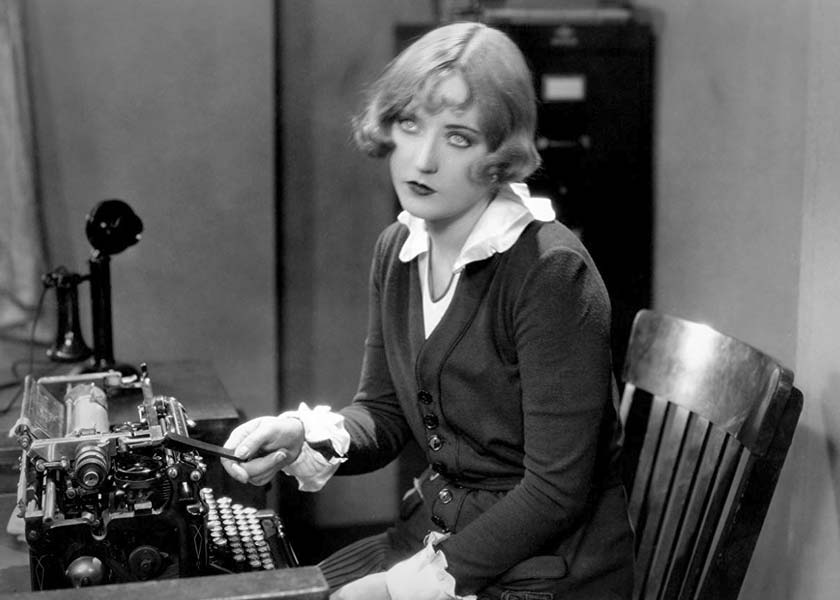Synopsis
Pat Harrington (Davies) is second fiddle to her beautiful sister Grace (Winton), who is greatly favored by Ma (Dressler), their domineering mother. Only the henpecked Pa Harrington (Henderson) sees Pat's true worth. Grace is courted by Tony Anderson (Caldwell), whom Pat also, and none-too-subtly, fancies.
The Harringtons attends a dinner and dance at the yacht club, where Grace catches the eye of the local playboy, Billy (Gray). He waits on their table and shows off for her. Grace responds favorably to his advances and leaves the dance with him. Tony is understandably upset, and Pat see her chance to make up to him. He drives her home, and she asks him for suggestions about improving her personality and making her more attractive to men. Tony gives her advice, blithely unaware that she is interested in using her new attractiveness on him. She tries to follow his advice, but only ends up convincing her mother and sister that she has gone stark raving mad.
One of her attempts at gaining personality leads her to read a self-help guide
that teaches her witticisms, such as,
Always remember— Nature gives us many of our features, but she lets us
pick our teeth,
and,
After all, a caterpillar is nothing more than an upholstered worm.
Tony
begins to notice Pat, not because of her 'improved' personality, but because she
is the only one who shows interest in his career, namely his architectural
designs. At this point, finding Tony's interest is moving to Pat, Grace decides
she wants him after all. In desperation, Pat goes to Billy's house to stage a
scene where Billy is attacking her, so that Tony can rush to her rescue.
Unfortunately, Billy is too hung over to notice her presence. She impersonates
three of his favorite movie stars (Mae Murray, Lillian Gish and Pola Negri) in an
attempt to rouse his interest. Instead, Billy thinks Murray and Gish images are
hallucinations, and the sight of Pola Negri, whom Marion portrays by sticking a
knife in her teeth and later waving it around, causes him to run around the room
in terror and collapse on the piano.
Finally, she locks herself in Billy's room, calls Tony, and then begins screaming for help. Billy jumps up and tries to save her by battering down the door, and when Tony arrives, he thinks Billy is after her and knocks the confused man out. However, instead of being kind to Pat, he berates her for getting into this situation in the first place, implying only a woman of low morals would go to Billy's house. Naturally, Pat is crushed, and it looks like all of her hopes are ended. However, her father finally asserts himself and tells off his wife and Grace for treating Pat so cruelly. He then marches out of the house, declaring he will never return. However, father and Tony return, and the couples are reconciled.
Discussion
The Patsy, adapted from Barry Connor's 1925 stage play and the first of three collaborations between Marion Davies and director King Vidor, is an enjoyable movie and proof that Marion Davies was a very good silent comedienne. Most of the funny moments in the movie belong to her, and she pulls them off with a great deal of aplomb. The impersonations were her specialty, and she is very convincing at all three roles, especially as Lillian Gish.
Marie Dressler and Dell Henderson, as the parents, have good scenes both with Davies and each other. One of their scenes together, as they dress for the family outing to the yacht club dinner, is particularly humorous. Davies and Henderson have to use the same mirror to dress in, and he is constantly pushed out of her way. Her attempts to squeeze into a low-cut gown provide an audience with a good deal of laughter.
Lawrence Gray has two very fine scenes in the film, his highlight being an amusing impersonation of a waiter. He nimbly juggles plates, silverware and food, until he finally drops a steak into the low cut bosom of Marie Dressler's gown. His confused and terrified drunk is also quite funny and rather pathetic. Jane Winton and Orville Caldwell perform their relatively straight roles adequately.
The Patsy did well upon release and received critical praise, even
outside the Hearst press (Marion Davies was newpaper magnate William Randolph
Hearst's mistress). Mordaunt Hall, reviewing the film for
The New York Times, found the film a pleasant diversion
and the
audience was
frequently thrown into gales of laughter by the performances of the players and
the frequently clever captions.
Davies
not only holds her own in the matter of vivacity and appearance, but she also
elicits more fun than one would suppose could be generated from even a modern
conception of the undying role. She is ably assisted by the adroit direction of
King Vidor, and the competent acting of the supporting cast.
Although Hall highlights the contribution of each of the cast members, he
particularly emphasizes Dell Henderson's performance:
There were several occasions when the natural expression on his countenance or
a scintilla of a change in his eyes, told enough to create loud merriment among
the spectators.
Variety, in its review of the film, states that the stage play has been
converted into a dandy laugh picture.
Marion Davies
does some really great comedy work. The imitations are great and reveal [her]
as a skillful mimic. Audience broke into applause on the Gish interpretation.
Corking fun stuff.
He recommends
the soft-pedaling of the customary Hearst hokum publicity to see if the picture
and the star cannot stand up and get by without the bolstering.
Variety also notes the laugh-producing effect of the clever subtitles, and
he states that
about half are taken directly from the stage dialogue, for which the playwright
does not receive screen credit.
Further Reading

